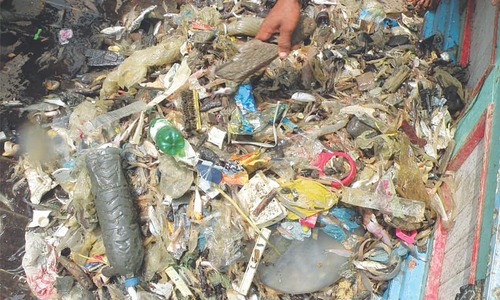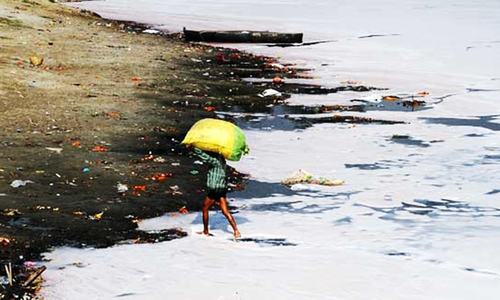Pakistani and Chinese researchers have discovered a fungus which feeds on plastic in a rubbish dump in Islamabad.
A study titled "Biodegradation of Polyester Polyurethane by Aspergillus tubingensis", authored by nine researchers from Pakistan and China ─ who stress the need for "new, safer and more effective ways to degrade waste plastic" ─ found that the fungus aspergillus tubingensis can break down non-biodegradable plastic in weeks by secreting enzymes which pull apart individual molecules.
Lead author of the study, Dr Sehroon Khan from the World Agroforestry Centre/Kunming Institute of Biology, was quoted by the World Agroforestry Centre as saying that her team had been looking for ways to degrade waste plastic that "already existed in nature".
"We decided to take samples from a rubbish dump in Islamabad, Pakistan, to see if anything was feeding on the plastic in the same way that other organisms feed on dead plant or animal matter," she said.
The study says that the fungus was tested in liquid, soil and Sabouraud Dextrose Agar (SDA) plate — that is primarily used for the isolation of dermatophytes, other fungi and yeasts — in order to discover the ideal conditions for it to be most effective.
Khan and her team discovered that while the fungus decomposed plastic in all three mediums, bio-degradation was highest when it was cultured on an SDA plate, followed by liquid and soil respectively.
According to the World Economic Forum, the fungus lives in soil but researchers say that it can also survive on plastic surfaces.
On its own, the plastic can take decades to decompose and is dangerous as it can carry carcinogens as well as other lethal pollutants.
The discovery of Aspergillus tubingensis can prove to be a solution to this threat. The fungus can be used in waste treatment plants to treat plastic particles that have polluted water supplies as well as soil.
The discovery of Aspergillus tubingensis is the most recent in the field of mycoremediation, a process that uses fungus to degrade polluting substances.












































